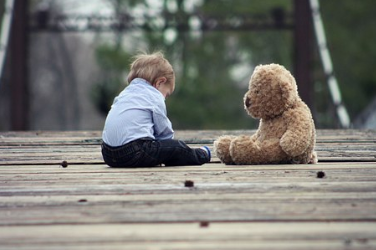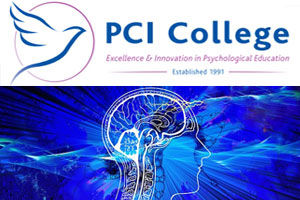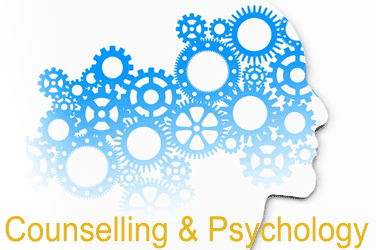Child Psychology Courses

There are many branches of psychology to specialise in; child psychology is one of the most frequently studied specialty areas. Child Psychology focuses on the mind and behaviour of children from prenatal development through to adolescence. This area of psychology deals with the mental, emotional and social development of children. All strands of child psychology are distinct and different from adult psychology. Children are no longer seen as a different and smaller version of adults. Today, psychologists, recognise that child psychology is unique and complex.
When child psychologists look at the development of a child, they take into account, not only internal factors, like genetics and personal characteristics – but contextual factors like their environment, which includes: social relationships, their cultural world, along with their socio-economic context. For example: children raised in households with a high socio-economic status tend to have greater access to opportunities, while those from households with lower socio-economic status may have less access to such things as healthcare, quality nutrition and education. Such factors can have a major impact on child psychology. Contexts are also constantly interacting and a child psychologist will examine these interactions also.
A child psychologist’s ultimate task in not just to gather information that goes towards explaining a child’s existence, but to use that information to improve parenting, education, child care and psychotherapy. Some child psychologists use information gathered in the discipline of Child Psychology in a therapeutic/counselling setting. By having a solid understanding, how children grow, think, and behave; parents and professionals working with children can be better prepared to help the kids in their care. No matter what population a child psychologist chooses (whether toddlers or teens), his or her focus will be on helping understand, prevent, diagnose and treat developmental, cognitive, social and emotional issues.
If you are considering studying child psychology – expect to study the following topics:
- Genetics
- Environmental Influences
- Prenatal Development
- Social Growth
- Personality Development
- Language
- Gender Roles
- Cognitive Development
- Sexual Development
The work a child psychologist undertakes depends upon where they work. Some professionals counsel young clients in therapeutic situations (as noted earlier), while others work in research to explore different aspects of child psychology including giftedness and development disabilities.
Career options could range from working as an adolescent psychologist, specialising with teenagers who suffer from psychological illness or distress including eating disorders, depression or anxiety to working as an educational psychologist, which involves the study of how people learn, including topics such as student outcomes, the instructional process, individual differences in learning, gifted learners and learning disabilities.
As a child psychologist, you must have a strong curiosity about a child’s behaviour and a desire to use your knowledge to help them. Those who choose to work with children must have the patience and skills to communicate with young clients who have not yet developed the cognitive or verbal capacity to express the problems that are causing them distress. This can make the process of diagnosing and treatment difficult and more prolonged. This work can be very demanding. You will need to be resilient and not become burdened by the problems you encounter.
There is no direct qualification leading to being a ‘Child Psychologist’. You either need to train as a clinical psychologist, then specialise in child psychology, or train in Educational Psychology to work with children in education. The first step to becoming a Psychologist in Ireland is to study for a primary degree at honours level in Psychology at University. There are psychology degree programmes available in most universities including: Dublin City University, Trinity College, NUIG and the University of Limerick, amongst others.
The BA in Psychology is accredited by the Psychological Society of Ireland. For those who wish to become professional psychologists, it is important to remember that the undergraduate degree is only the first stage in professional training that will require an additional two to six years of study and supervised experience.
Queens University in Belfast offer graduates the opportunity to study: Educational Child & Adolescent Psychology.
NUI Galway offer graduates the opportunity to complete their Doctor of Psychological Science (DPsychSc) in Clinical Psychology. This is a taught doctoral programme that provides professional training in clinical psychology. The programme is provided in partnership with clinical psychology services in the Health Services Executive and other health service agencies. The overall objective of the programme is to produce competent and capable clinical psychologists for the Irish health service, through the provision of high quality training in the clinical, academic and research elements of clinical psychology. All trainees have placements in mental health settings working with both child and adult clients.
Child Psychology Courses (NON CAO):
The College of Management and IT (CMIT) run a QQI (LEVEL 6) Child Psychology course. This is a course is designed to provide the learner with an understanding of child psychology relevant to childhood education and care settings, and to equip the learner with the knowledge and skills required to understand child psychology from 4 to 18 years. The module leads to a Level 6 component award on the National Framework of Qualifications. This course is ideal for: teachers, childcare workers, youth workers, childcare supervisors and childcare managers.
Portobello Institute also run a Child Psychology course. The aim of this course is to introduce the student to the methods, language and practice of child psychology. It examines the core issues in relation to psychological development including language, thinking and socialisation, with particular focus on the emergence of the child as an individual.
A knowledge of child psychology is useful when working in any setting that involves children. Understanding their development stage and how a child’s contextual world might affect them emotionally and mentally – will go towards providing children with appropriate responses to their needs.
If you wish to pursue a full-time career as a child psychologist – expect both a demanding but rewarding career. Like most careers, but specifically when working with children, it is best to have a genuine interest in a child’s behaviour and well-being, rather than just an interest in the general area of study.




